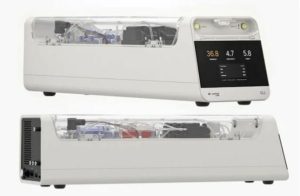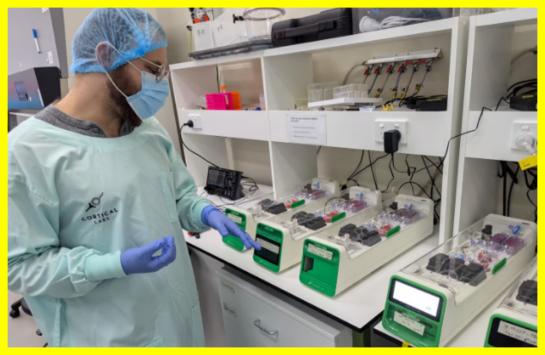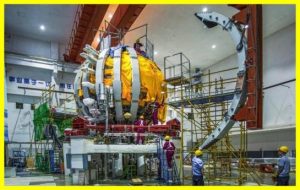World’s first biocomputer based on human cells
Australian company Cortical Labs has unveiled the world’s first commercial biocomputer CL1, which combines human neurons and silicon chips.
The new system promises to revolutionize computing by learning faster than traditional artificial intelligence and consuming less energy, New Atlas reports.
The CL1 is based on synthetic biological intelligence technology.
Inside the device, living neurons grown from pluripotent stem cells form an organic computational network.

They are placed on an electrode array that provides precise control of signals and allows the system to adapt in real time.
The biocomputer is housed in a special life support unit with a nutrient environment, filtration system and thermoregulation.
The CL1 is able to function autonomously without an external computer, making it a more natural alternative to traditional AI systems.
The developers have launched the first server rack of 30 of these units and plan to bring the technology to the commercial market by the end of the year.
Customers will be able to either rent remote access to the biocomputer via a cloud service or purchase the device.
Experts believe that CL1 opens up prospects for medicine, pharmaceuticals and robotics.
Biocomputers can be used for testing new drugs, modeling neurodegenerative diseases and creating adaptive artificial intelligence.





















